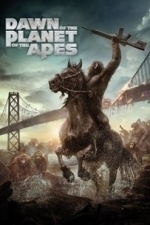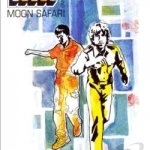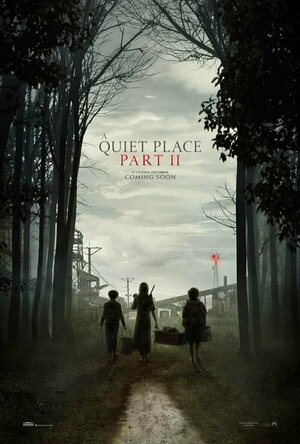Search
Search results
Daniel Boyd (1066 KP) rated Marvel's Spider-Man in Video Games
Jan 15, 2019 (Updated Jan 15, 2019)
The best web swinging has felt in any Spiderman game ever. (3 more)
Good presentation in all of the cutscenes.
Enjoyable orchestral backdrop to swing around Manhattan to.
The parts of Manhattan that are in the game look great.
A lot of Manhattan has been left out or vastly downsized. (2 more)
The other 4 boroughs have been ignored.
Although the presentation is great, the graphics are slightly sub par.
Thwip!
Marvel's Spider-man was one of the biggest games of last year. Developed by Insomniac and following an original story, not tied in to the recent MCU movie, this was the most exciting superhero game since the Arkham series for a lot of people. Thankfully, Insomniac did manage to deliver a brilliant game, but not a perfect one.
The game's opening fantastically sets up the tone and energy of what's to follow and it's probably one of the best video game opening's I have ever played in that respect. Once the rush and momentum of that first mission wears off, you are introduced to the open world that you will be exploring for the next 20 or so hours. Manhattan does look good here, possibly the best it ever has done in a game. Landmarks like the Empire State Building and Madison Square Garden are rendered extremely accurately to their real life counterparts.
The stuff that they chose to include in the game's version of Manhattan is great, but the issue is all of the parts that they left out. Battery Park is has halved in size, the One World Trade Centre has changed shape and everything above mid Harlem has vanished, making the district feel stumpy. Hopefully some of this stuff is amended for the sequel, along with the addition of at least a couple of the other boroughs.
Although the environment looks good graphically, as do Spidey's various suits that can be unlocked during the game, the human character models aren't the best and are fairly ugly when compared to character models in other 2018 games such as God of War, Red Dead 2 and Detroit: Become Human. Usually, in cutscenes etc, the game presents these character model well enough that it isn't too noticeable, but there were a good few times during gameplay that I would catch a glimpse of MJ's or Miles' weird faces and scratch my head wondering why they don't look better.
I have heard a few reviews moaning about the orchestral score that plays in the background as you swing around the city, but I personally really enjoyed it and it made me feel even more like a superhero than I already do when swinging through the middle of Times Square. I felt that all of the musical choices were well implemented and matched the story beats aptly to add impact in the right places.
Let's finish on a positive, the web swinging mechanic in this game is extremely satisfying and comes out on top of any other Spider-man game's web swinging system. Again, it's not flawless, there are moments that it will frustrate you and you will web to the opposite side of what you were aiming for. Also, for some reason the wall crawling mechanic is really slow and finicky and can often break the fast paced momentum of the web swinging/zipping/wall running combo that you have going. Most of the time though, it works fantastically and feels extremely fluid and immersive and it is probably one of the most satisfying game mechanics of 2018, along with Kratos' axe in GOW.
Overall, Marvel's Spider-man is great, but not perfect. There is definitely room for improvement, but this could be the start of a potentially incredible series of Marvel superhero games and hopefully the sequel, (that Insomniac is undoubtedly working on,) can improve on some of the flaws present in this game and deliver something incredible.
The game's opening fantastically sets up the tone and energy of what's to follow and it's probably one of the best video game opening's I have ever played in that respect. Once the rush and momentum of that first mission wears off, you are introduced to the open world that you will be exploring for the next 20 or so hours. Manhattan does look good here, possibly the best it ever has done in a game. Landmarks like the Empire State Building and Madison Square Garden are rendered extremely accurately to their real life counterparts.
The stuff that they chose to include in the game's version of Manhattan is great, but the issue is all of the parts that they left out. Battery Park is has halved in size, the One World Trade Centre has changed shape and everything above mid Harlem has vanished, making the district feel stumpy. Hopefully some of this stuff is amended for the sequel, along with the addition of at least a couple of the other boroughs.
Although the environment looks good graphically, as do Spidey's various suits that can be unlocked during the game, the human character models aren't the best and are fairly ugly when compared to character models in other 2018 games such as God of War, Red Dead 2 and Detroit: Become Human. Usually, in cutscenes etc, the game presents these character model well enough that it isn't too noticeable, but there were a good few times during gameplay that I would catch a glimpse of MJ's or Miles' weird faces and scratch my head wondering why they don't look better.
I have heard a few reviews moaning about the orchestral score that plays in the background as you swing around the city, but I personally really enjoyed it and it made me feel even more like a superhero than I already do when swinging through the middle of Times Square. I felt that all of the musical choices were well implemented and matched the story beats aptly to add impact in the right places.
Let's finish on a positive, the web swinging mechanic in this game is extremely satisfying and comes out on top of any other Spider-man game's web swinging system. Again, it's not flawless, there are moments that it will frustrate you and you will web to the opposite side of what you were aiming for. Also, for some reason the wall crawling mechanic is really slow and finicky and can often break the fast paced momentum of the web swinging/zipping/wall running combo that you have going. Most of the time though, it works fantastically and feels extremely fluid and immersive and it is probably one of the most satisfying game mechanics of 2018, along with Kratos' axe in GOW.
Overall, Marvel's Spider-man is great, but not perfect. There is definitely room for improvement, but this could be the start of a potentially incredible series of Marvel superhero games and hopefully the sequel, (that Insomniac is undoubtedly working on,) can improve on some of the flaws present in this game and deliver something incredible.
Sophia (Bookwyrming Thoughts) (530 KP) rated Deep Blue (Waterfire Saga, #1) in Books
Jan 23, 2020
<i>Deep Blue</i> could have been amazing. Donnelly had a pretty good concept going: the world was unique, completely different, and it's obvious lots of planning went into the building – there's <b>a lot of imagery to clearly depict the underwater of the merpeople, the merpeople had their own distinct languages and cultures</b>. The writing, especially the chant during the waterfire and throughout the book by the witches, was <b>poetic and rhythmic.</b>
The execution, however, was poor.
Serafina and her friend, Neela, were <b>faced against formidable odds after Miromara is attacked that could have been really interesting to see them play out</b>. Instead, the two of them run. Throughout the book, they're chased by a person named Traho, who apparently wants them alive for some unknown reason (currently unknown, that is). The two are rescued by the Praedatori, who are apparently a band of protectors who protect the sea from "terragoggs."
Yet, they are attacked. Again. So they run and get intercepted by Rorrim Drol, the lord of the mirror realm who feeds on fears. And...
Wait for it...
They run again.
<table class="tr-caption-container" style="margin-left: auto; margin-right: auto; text-align: center;" cellspacing="0" cellpadding="0" align="center">
<tbody>
<tr>
<td style="text-align: center;"><img style="margin-left: auto; margin-right: auto;" src="http://bookwyrmingthoughts.bookblog.io/wp-content/uploads/sites/317/2015/05/Patrick-running-funny-gif-comics-celbrities-picture.gif"; width="320" height="183" border="0" /></td>
</tr>
<tr>
<td class="tr-caption" style="text-align: center;">I had to use this.</td>
</tr>
</tbody>
</table>
<div class="separator" style="clear: both; text-align: center;"></div>
<b>Obviously by that point (when it's almost sixty percent of the book), when they've been attacked and they run or something of the similar sort, and the cycle is repeated quite a few times...</b>
<b style="letter-spacing: 0px;">Even the most patient readers become impatient by that point</b><span style="letter-spacing: 0px;">. Either </span>that<span style="letter-spacing: 0px;"> or I'm not exactly as patient as some people have said about me (you lovelies are sorrily wrong). Where are the other five? Why have we only found three (okay, one, because two are "found" at the very beginning </span>anyway<span style="letter-spacing: 0px;">) by this point? Are we still looking for the mermaids involved by the next book as well? If that's the case, I'm not interested. If it's an entirely different case, then what's the probability that the other mermaids are found quickly and swiftly in the midst of attacking and running? There's really only 40% of the book left to do all of that.</span>
The world, no matter how unique or different it is, or how there's a variety of imagery, won't account with how<b> there's a bunch of made-up language that would have been extremely hard for me to figure out without the audiobook to help me (no thanks to the accent</b> – accents are NOT fun when the bus is chugging down roads and highways). I did, however, love the songspell (Open Your Eyes by Bea Miller) that accompanies the book.
<i>Deep Blue</i> is definitely different from Donnelly's other books, but with all the running from the attacks and rarely anything being accomplished by the majority of the book, I simply didn't have the patience. If anything, I probably <i>shouldn't</i> have lasted as long as I did.
<a href="https://bookwyrmingthoughts.com/dnf-audiobook-review-deep-blue-by-jennifer-donnelly/"; target="_blank">This review was originally posted on Bookwyrming Thoughts</a>
The execution, however, was poor.
Serafina and her friend, Neela, were <b>faced against formidable odds after Miromara is attacked that could have been really interesting to see them play out</b>. Instead, the two of them run. Throughout the book, they're chased by a person named Traho, who apparently wants them alive for some unknown reason (currently unknown, that is). The two are rescued by the Praedatori, who are apparently a band of protectors who protect the sea from "terragoggs."
Yet, they are attacked. Again. So they run and get intercepted by Rorrim Drol, the lord of the mirror realm who feeds on fears. And...
Wait for it...
They run again.
<table class="tr-caption-container" style="margin-left: auto; margin-right: auto; text-align: center;" cellspacing="0" cellpadding="0" align="center">
<tbody>
<tr>
<td style="text-align: center;"><img style="margin-left: auto; margin-right: auto;" src="http://bookwyrmingthoughts.bookblog.io/wp-content/uploads/sites/317/2015/05/Patrick-running-funny-gif-comics-celbrities-picture.gif"; width="320" height="183" border="0" /></td>
</tr>
<tr>
<td class="tr-caption" style="text-align: center;">I had to use this.</td>
</tr>
</tbody>
</table>
<div class="separator" style="clear: both; text-align: center;"></div>
<b>Obviously by that point (when it's almost sixty percent of the book), when they've been attacked and they run or something of the similar sort, and the cycle is repeated quite a few times...</b>
<b style="letter-spacing: 0px;">Even the most patient readers become impatient by that point</b><span style="letter-spacing: 0px;">. Either </span>that<span style="letter-spacing: 0px;"> or I'm not exactly as patient as some people have said about me (you lovelies are sorrily wrong). Where are the other five? Why have we only found three (okay, one, because two are "found" at the very beginning </span>anyway<span style="letter-spacing: 0px;">) by this point? Are we still looking for the mermaids involved by the next book as well? If that's the case, I'm not interested. If it's an entirely different case, then what's the probability that the other mermaids are found quickly and swiftly in the midst of attacking and running? There's really only 40% of the book left to do all of that.</span>
The world, no matter how unique or different it is, or how there's a variety of imagery, won't account with how<b> there's a bunch of made-up language that would have been extremely hard for me to figure out without the audiobook to help me (no thanks to the accent</b> – accents are NOT fun when the bus is chugging down roads and highways). I did, however, love the songspell (Open Your Eyes by Bea Miller) that accompanies the book.
<i>Deep Blue</i> is definitely different from Donnelly's other books, but with all the running from the attacks and rarely anything being accomplished by the majority of the book, I simply didn't have the patience. If anything, I probably <i>shouldn't</i> have lasted as long as I did.
<a href="https://bookwyrmingthoughts.com/dnf-audiobook-review-deep-blue-by-jennifer-donnelly/"; target="_blank">This review was originally posted on Bookwyrming Thoughts</a>
Gareth von Kallenbach (980 KP) rated Dawn Of The Planet Of The Apes (2014) in Movies
Aug 6, 2019
Full disclosure here: I am a huge fan of the original series of Planet of the Apes movies. I have them on VHS and Laser Disc, having watched them at least a dozen times each. That being said, I didn’t really enjoy 2011’s Rise of the Planet of Apes with James Franco. Not that it was a bad movie, per say, but it didn’t really keep me captivated, so much so that I can barely remember all of the main plot points. At the time I thought that I might be jaded being such a huge fan of the originals. And then I saw Dawn of the Planet of the Apes (we’ll just refer to it as “Dawn” from here on out). I didn’t have very high expectations for Dawn.
Set 10 years after Rise, Dawn sees the world in ruins. Humans are struggling to survive after the Simian virus wreaked havoc on the planet. Living in colonies, they are unaware that there is a growing nation of genetically evolved apes led by Caesar. When the apes and the humans discover each other, they both feel threatened, but there is one man, Malcolm (Jason Clarke), who sees the compassion in Caesar and thinks that he will allow the humans to attempt work on a nearby dam to restore power to their colony. But dissent in the ranks of both sides of the banana prove to threaten this shaky alliance.
This movie blew me away. With an excellent cast to compliment the CGI apes in the movie, you quickly forget that there is any CGI involved at all. The seamless visuals make you feel like Dreyfus (Gary Oldman), Ellie (Keri Russell) and Alexander (Kodi Smit-McPhee) were actually interacting with the apes. The story was also very well done and seemed very plausible for the tattered world that comes about after the apocalyptic event brought on by the Simian virus. Top this all off with a tremendous score, and you have a great movie-going experience. One that definitely lives up to the original movies.
If I had one complaint about this movie, it was the rapid rate at which the apes seemed to evolve in the span of a few days. Although it’s been 10 years since the last movie, in which Caesar did speak, the movie does open with the apes communicating through inaudible language. My first thought was that they are hunt, so they are choosing to communicate in this fashion, but even when they return to their village, they continue with the inaudible, “sign-language” communication. Then over the course of the next three to four days, they slowly bring speech into their communication between themselves and the humans. The big thing is that they seem to struggle with the words at first (even Caesar), and then by the end of the movie, they are holding complete conversations. Just seems a bit rapid to me. But, it was impactful in the progression of the movie. So one small gripe on this is not enough to bring down my opinion of the film.
Here it is again, my friends. Will I buy Dawn when it is released for home consumption? You bet. Unfortunately, it is also going to force me to buy Rise as well. Though, this may not be a bad thing as a second viewing sometimes brings out the good in movies I didn’t like the first time through, especially as I now know what it is building towards. Go see this one in the theaters my friends. And be sure to check it out in 3D also, it was very well done and not overpowering as some movies have been in the past. Though if you have issues with 3D, I am sure it is just as visually appealing in 2D.
Set 10 years after Rise, Dawn sees the world in ruins. Humans are struggling to survive after the Simian virus wreaked havoc on the planet. Living in colonies, they are unaware that there is a growing nation of genetically evolved apes led by Caesar. When the apes and the humans discover each other, they both feel threatened, but there is one man, Malcolm (Jason Clarke), who sees the compassion in Caesar and thinks that he will allow the humans to attempt work on a nearby dam to restore power to their colony. But dissent in the ranks of both sides of the banana prove to threaten this shaky alliance.
This movie blew me away. With an excellent cast to compliment the CGI apes in the movie, you quickly forget that there is any CGI involved at all. The seamless visuals make you feel like Dreyfus (Gary Oldman), Ellie (Keri Russell) and Alexander (Kodi Smit-McPhee) were actually interacting with the apes. The story was also very well done and seemed very plausible for the tattered world that comes about after the apocalyptic event brought on by the Simian virus. Top this all off with a tremendous score, and you have a great movie-going experience. One that definitely lives up to the original movies.
If I had one complaint about this movie, it was the rapid rate at which the apes seemed to evolve in the span of a few days. Although it’s been 10 years since the last movie, in which Caesar did speak, the movie does open with the apes communicating through inaudible language. My first thought was that they are hunt, so they are choosing to communicate in this fashion, but even when they return to their village, they continue with the inaudible, “sign-language” communication. Then over the course of the next three to four days, they slowly bring speech into their communication between themselves and the humans. The big thing is that they seem to struggle with the words at first (even Caesar), and then by the end of the movie, they are holding complete conversations. Just seems a bit rapid to me. But, it was impactful in the progression of the movie. So one small gripe on this is not enough to bring down my opinion of the film.
Here it is again, my friends. Will I buy Dawn when it is released for home consumption? You bet. Unfortunately, it is also going to force me to buy Rise as well. Though, this may not be a bad thing as a second viewing sometimes brings out the good in movies I didn’t like the first time through, especially as I now know what it is building towards. Go see this one in the theaters my friends. And be sure to check it out in 3D also, it was very well done and not overpowering as some movies have been in the past. Though if you have issues with 3D, I am sure it is just as visually appealing in 2D.
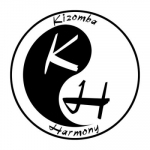
Kizomba To Go™
Education and Entertainment
App
***BREAKING NEWS*** Level 2, Level 3, and the Follow Series are now available as in-app purchases! ...
James Bagshaw recommended track Femme d'argent, La (with Air France) by Air in Moon Safari by Air in Music (curated)
Gareth von Kallenbach (980 KP) rated A Quiet Place: Part II (2021) in Movies
May 25, 2021 (Updated May 25, 2021)
Last year we had a screening for “A Quiet Place Part II” scheduled and eagerly awaited the follow-up to the suspenseful and popular original film. Sadly we all know what happened soon after as a two-week lockdown grew and cinemas around the world were closed.
As cinemas re-open with growing but limited capacity; the film is set for release and will be a great indicator as to if the public is ready to return to cinemas in significant numbers or will they sit it out and opt to see the film down the line on Paramount+.
The film opens with a look at the day things changed for the world as Lee (John Krasinski); does some shopping while news reports come in of an explosion in Shanghai. Enjoying the weather; he joins his family at a Little League game and talks with his friend Emmett (Cillian Murphy) when the game is interrupted by the appearance of a large fireball in the sky.
As they head home; the city falls under attack by deadly creatures and Lee and his family narrowly escape. The film then jumps forward immediately following the conclusion of the first film and Evelyn (Emily Blunt); attempts to lead her newborn son, daughter Regan ( Millicent Simmons), and son Marcus (Noah Jupe) to a safer locale.
When Marcus is injured along the way; Evelyn takes refuge with Emmett who is not happy to have to care for others after the loss of his wife and despite a secure locale in a foundry; demands the family leave the following day.
When an unexpected radio signal appears; Regan is determined to leave and find the source as she knows the frequency of her Cochlear Implant is a weapon against the creatures and she figures if that can be broadcasted and the information revealed; then humanity has a chance to fight back and win.
What follows is a very gripping and intense story as Regan and Emmett attempt to complete the mission while Evelyn and her family endure all manner of threats as they try to survive.
The film builds upon what made the first film so great in that there are strong and relatable characters and some very tense situations. The screening we attended was so quiet you could tell that audience members were so enthralled that they were afraid to make any noise.
The film ups the action and expands upon the universe without losing any of the strong character-driven elements or relying too much upon CGI to carry the film.
John Krasinski writes, directed, and produced the film, and while he has less screen time than he did in the original; the film is the rare sequel that holds its own and actually improves upon the original.
My only issue with the film was that the ending was rather abrupt and left me with several unanswered questions. While this would be more than fine if we were assured of a third film to resolve unanswered elements; word is that a spin-off is in development so hopefully this will resolve the issues I had or at the least co-exist with a third part of the series.
For now; “A Quiet Place Part II” drives home why we need the cinematic experience as from the large screen to the Dolby Atmos sound; the film is a sensory experience that needs to be enjoyed in a communal setting with maximum sensory input.
The film sets the tension meter to the max and never disappoints and I urge you to experience this film the way it was intended.
4.5 stars out of 5
As cinemas re-open with growing but limited capacity; the film is set for release and will be a great indicator as to if the public is ready to return to cinemas in significant numbers or will they sit it out and opt to see the film down the line on Paramount+.
The film opens with a look at the day things changed for the world as Lee (John Krasinski); does some shopping while news reports come in of an explosion in Shanghai. Enjoying the weather; he joins his family at a Little League game and talks with his friend Emmett (Cillian Murphy) when the game is interrupted by the appearance of a large fireball in the sky.
As they head home; the city falls under attack by deadly creatures and Lee and his family narrowly escape. The film then jumps forward immediately following the conclusion of the first film and Evelyn (Emily Blunt); attempts to lead her newborn son, daughter Regan ( Millicent Simmons), and son Marcus (Noah Jupe) to a safer locale.
When Marcus is injured along the way; Evelyn takes refuge with Emmett who is not happy to have to care for others after the loss of his wife and despite a secure locale in a foundry; demands the family leave the following day.
When an unexpected radio signal appears; Regan is determined to leave and find the source as she knows the frequency of her Cochlear Implant is a weapon against the creatures and she figures if that can be broadcasted and the information revealed; then humanity has a chance to fight back and win.
What follows is a very gripping and intense story as Regan and Emmett attempt to complete the mission while Evelyn and her family endure all manner of threats as they try to survive.
The film builds upon what made the first film so great in that there are strong and relatable characters and some very tense situations. The screening we attended was so quiet you could tell that audience members were so enthralled that they were afraid to make any noise.
The film ups the action and expands upon the universe without losing any of the strong character-driven elements or relying too much upon CGI to carry the film.
John Krasinski writes, directed, and produced the film, and while he has less screen time than he did in the original; the film is the rare sequel that holds its own and actually improves upon the original.
My only issue with the film was that the ending was rather abrupt and left me with several unanswered questions. While this would be more than fine if we were assured of a third film to resolve unanswered elements; word is that a spin-off is in development so hopefully this will resolve the issues I had or at the least co-exist with a third part of the series.
For now; “A Quiet Place Part II” drives home why we need the cinematic experience as from the large screen to the Dolby Atmos sound; the film is a sensory experience that needs to be enjoyed in a communal setting with maximum sensory input.
The film sets the tension meter to the max and never disappoints and I urge you to experience this film the way it was intended.
4.5 stars out of 5
Gareth von Kallenbach (980 KP) rated the PC version of Marvel's Avengers in Video Games
Sep 7, 2020
Square Enix and Crystal Dynamics have combined to create one of the most enjoyable Super Hero games ever and one of the more enjoyable gaming experiences of 2020. In Marvel’s Avengers; players are introduced to Kamala Khan; a huge Avengers fan who is invited to be a Fan Fiction finalist and VIP at the massive A Day convention in San Francisco.
What starts as a celebration for the famed heroes soon turns tragic and the game picks up five years late in a world where the Avengers and Heroes are no more. A corporation known as AIM has acquired Stark Industries and maintains their version of law and order through specialized forces as robotic Synths. It is revealed that a reactor powered by a new source was to blame for the A Day disaster and it has created Inhumans as a result.
Kamala finds herself able to stretch her body and upon learning that things on A Day were not as the world has been set to believe sets off with AIM hot on her heels to unlock the clues and save the Avengers.
Along the way players will play as several of the iconic characters and will encounter group missions where players may be matched online or assigned A.I. companions.
Each characters has their own unique skills and timed special abilities which recharge after use and can be a game-changer as enemies become more numerous and difficult.
Each character also has their own combat moves and abilities ranging from ranged attacks to close quarters combat. While The Hulk can throw objects; he is better suited to get in close and mix things up. Iron Man while capable of delivering punches is better used flying and hovering and blasting everything he encounters.
Part of the joy of the game aside from the engaging story is learning new ways to defeat enemies including some team based body slams and other enjoyable moves.
Players are based on a Helicarrier and there are plenty of things to explore and naturally numerous cosmetics, upgrades, and such which players can obtain via looting or at many of the vendors they encounter.
Missions are assigned via a War Table and players have the option to select campaign specific missions or to mix in some side missions as well. Upon completion of the main game; players will have the opportunity to play more side and extra missions and can use a Quick Match open to play with other players as well.
There were a few glitches along the way on my PC build but while a bit annoying a first they became less frequent as the game went along. Some people may have issues with the look of the characters as Tony Stark for example looked to me more like a young Ben Affleck than Robert Downey Jr. but with so many interpretations of the characters over the years this is a minor issue as I was enveloped by the gameplay quickly.
Missions are enjoyable and the timed jump sequences are not unreasonable and players looking for a challenge will be able to adjust the game difficulty to a setting that best suits their style of play.
I first played the game at an invite only meeting during PAX West 2019 and after getting some gameplay time; the developers outlined to us some of the long-term plans for the game from new characters and cosmetics and so on. The game sets up further adventures well and I found myself enjoying the game and characters from starts to finish. The game does a great job establishing Kamala and building her character while giving players plenty of time as the classic Avengers and has more than a few nice surprises along the way.
4 stars out of 5
What starts as a celebration for the famed heroes soon turns tragic and the game picks up five years late in a world where the Avengers and Heroes are no more. A corporation known as AIM has acquired Stark Industries and maintains their version of law and order through specialized forces as robotic Synths. It is revealed that a reactor powered by a new source was to blame for the A Day disaster and it has created Inhumans as a result.
Kamala finds herself able to stretch her body and upon learning that things on A Day were not as the world has been set to believe sets off with AIM hot on her heels to unlock the clues and save the Avengers.
Along the way players will play as several of the iconic characters and will encounter group missions where players may be matched online or assigned A.I. companions.
Each characters has their own unique skills and timed special abilities which recharge after use and can be a game-changer as enemies become more numerous and difficult.
Each character also has their own combat moves and abilities ranging from ranged attacks to close quarters combat. While The Hulk can throw objects; he is better suited to get in close and mix things up. Iron Man while capable of delivering punches is better used flying and hovering and blasting everything he encounters.
Part of the joy of the game aside from the engaging story is learning new ways to defeat enemies including some team based body slams and other enjoyable moves.
Players are based on a Helicarrier and there are plenty of things to explore and naturally numerous cosmetics, upgrades, and such which players can obtain via looting or at many of the vendors they encounter.
Missions are assigned via a War Table and players have the option to select campaign specific missions or to mix in some side missions as well. Upon completion of the main game; players will have the opportunity to play more side and extra missions and can use a Quick Match open to play with other players as well.
There were a few glitches along the way on my PC build but while a bit annoying a first they became less frequent as the game went along. Some people may have issues with the look of the characters as Tony Stark for example looked to me more like a young Ben Affleck than Robert Downey Jr. but with so many interpretations of the characters over the years this is a minor issue as I was enveloped by the gameplay quickly.
Missions are enjoyable and the timed jump sequences are not unreasonable and players looking for a challenge will be able to adjust the game difficulty to a setting that best suits their style of play.
I first played the game at an invite only meeting during PAX West 2019 and after getting some gameplay time; the developers outlined to us some of the long-term plans for the game from new characters and cosmetics and so on. The game sets up further adventures well and I found myself enjoying the game and characters from starts to finish. The game does a great job establishing Kamala and building her character while giving players plenty of time as the classic Avengers and has more than a few nice surprises along the way.
4 stars out of 5
Darren (1599 KP) rated Obey (2018) in Movies
Aug 30, 2019
Verdict: Eye-Opening Drama
Story: Obey starts as we meet Leon (Rutherford) a 19-year-old man living in London, he doesn’t have the education, he spends most of his time getting high and drinking with friends, while causing trouble with other gangs, Leon does train in boxing and is starting to wonder what his life is meant to be.
As the violence in the surrounding neighbourhood, Leon starts to question everything more, as he sees his friends acting out causing bigger problems, while he homelife isn’t getting any better with his alcoholic mother, stopping him from getting a chance to improve himself and the woman he meets Twiggy (Clark) only gives him mixed messages.
Thoughts on Obey
Characters – Leon is the 19-year-old man that was raised in the London, where he has become part of a gang, didn’t get a chance at an education and is left facing a life of uncertainty. Leon is feeling like life is going no where now and he wants to do something about it, this could see him go back into education or continue his training in boxing, but the reality comes with him that he just doesn’t want to get involved in criminal actions going on within London, it is a make or break time for the young man, that we completely understand his position in life. Twiggy is the woman that Leon meets, she has been squatting in London with her boyfriend, though she is a free spirit that isn’t looking for trouble, which makes her different to everybody else in Leon’s life. Anton is her boyfriend that we don’t learn to much about other than he is happy to hang out with whoever and fights for rights. We do get to meet most of the gang Leon is in, though the names are easy to forget, they represent a life of crime he could fall into, Leon’s alcoholic mother and her abusive boyfriend, each character does seem to reflect a life Leon could have.
Performances – Marcus Rutherford easily gives us a standout performance in this film, he will make you understand every single situation his character is going through, which is a delight to watch. Sophie Kennedy Clark is everything she needs to be, with the whole supporting cast making you feel like you are part of this world that Leon is living through.
Story – The story here follows a young man who grew up in London as part of a gang, who isn’t given a chance of a future, until he meets a stranger and is left to decide what he wants for his own future. This story is a true eye opener when it comes to showing us how the gang situation happens, is treated and how hopeless somebody could be if they are trapped within it. We do only follow one person, who is given a few outs, through support, a woman, but is also held back by his lack of education, his gang friends and caring for his addict mother. This does show us how hard the life can be, how the mentality can see the person making the wrong decisions, how the outsiders can see them as wrong, rather than not given a chance. This is an important story for the people of England to see and one that could open up more eyes to what the problems really are, not what they think they are.
Settings – The film is set in London, this does show us just how difficult the life would be for Leon and other young people in this location, if they haven’t been given a chance.
Scene of the Movie – The journey.
That Moment That Annoyed Me – Not enough development of the supporting characters.
Final Thoughts – This is one of the most important eye openers in the world of film, it doesn’t glorify anything, just keeps it feeling realistic throughout the film.
Overall: Important drama.
Story: Obey starts as we meet Leon (Rutherford) a 19-year-old man living in London, he doesn’t have the education, he spends most of his time getting high and drinking with friends, while causing trouble with other gangs, Leon does train in boxing and is starting to wonder what his life is meant to be.
As the violence in the surrounding neighbourhood, Leon starts to question everything more, as he sees his friends acting out causing bigger problems, while he homelife isn’t getting any better with his alcoholic mother, stopping him from getting a chance to improve himself and the woman he meets Twiggy (Clark) only gives him mixed messages.
Thoughts on Obey
Characters – Leon is the 19-year-old man that was raised in the London, where he has become part of a gang, didn’t get a chance at an education and is left facing a life of uncertainty. Leon is feeling like life is going no where now and he wants to do something about it, this could see him go back into education or continue his training in boxing, but the reality comes with him that he just doesn’t want to get involved in criminal actions going on within London, it is a make or break time for the young man, that we completely understand his position in life. Twiggy is the woman that Leon meets, she has been squatting in London with her boyfriend, though she is a free spirit that isn’t looking for trouble, which makes her different to everybody else in Leon’s life. Anton is her boyfriend that we don’t learn to much about other than he is happy to hang out with whoever and fights for rights. We do get to meet most of the gang Leon is in, though the names are easy to forget, they represent a life of crime he could fall into, Leon’s alcoholic mother and her abusive boyfriend, each character does seem to reflect a life Leon could have.
Performances – Marcus Rutherford easily gives us a standout performance in this film, he will make you understand every single situation his character is going through, which is a delight to watch. Sophie Kennedy Clark is everything she needs to be, with the whole supporting cast making you feel like you are part of this world that Leon is living through.
Story – The story here follows a young man who grew up in London as part of a gang, who isn’t given a chance of a future, until he meets a stranger and is left to decide what he wants for his own future. This story is a true eye opener when it comes to showing us how the gang situation happens, is treated and how hopeless somebody could be if they are trapped within it. We do only follow one person, who is given a few outs, through support, a woman, but is also held back by his lack of education, his gang friends and caring for his addict mother. This does show us how hard the life can be, how the mentality can see the person making the wrong decisions, how the outsiders can see them as wrong, rather than not given a chance. This is an important story for the people of England to see and one that could open up more eyes to what the problems really are, not what they think they are.
Settings – The film is set in London, this does show us just how difficult the life would be for Leon and other young people in this location, if they haven’t been given a chance.
Scene of the Movie – The journey.
That Moment That Annoyed Me – Not enough development of the supporting characters.
Final Thoughts – This is one of the most important eye openers in the world of film, it doesn’t glorify anything, just keeps it feeling realistic throughout the film.
Overall: Important drama.
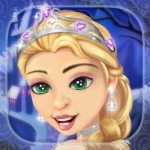
Fashion Princess Dress Up Game for Girls: Makeover
Lifestyle and Games
App
*** Become a true fashion icon with this amazing dress up game! *** ** Welcome to the fashionable...

Ho’oponopono Clean and Erase
Health & Fitness and Lifestyle
App
Multi Lingual - English / Español / Hungarian Erasing your Problems got Easier than Ever. Now...


